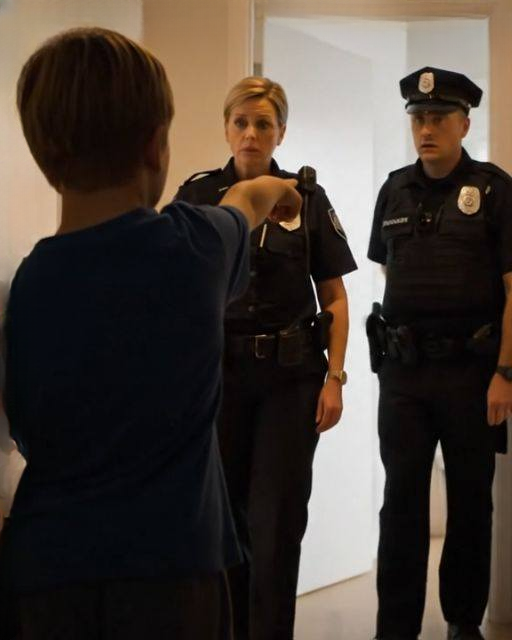The phone call started as a joke—or at least, that’s what I thought.
I had yelled during a game, and my mom stole my Xbox. I threatened to call the police. She smirked, “Go ahead. Tell them I stole your pizza too.”
I didn’t think she meant I should actually call. But I did.
Ten minutes later, there was a knock. Two officers. Calm, professional, serious. I froze. Mom asked who it was; I pointed down the hall.
Inside my room, the male officer spotted a small reddish-brown stain on the carpet. Mom went pale.
“Is this blood?”
I nodded. “I think… yesterday.”
Questions followed. Violence at home? Discipline? Safety? My throat tightened with each answer. Mom barely spoke, twisting her sweatshirt nervously.
They left eventually, saying they might follow up. The house felt different afterward. Mom didn’t yell that night. She cooked my favorite dinner, hands trembling as she set the plate down.
“I didn’t mean—” I started.
“I know,” she said softly. “But they still came.”
Her words hit harder than my anger. Apologies felt small.
After that day, things shifted. She stopped taking my things to tease me. She became quieter, distant—but I noticed her struggles: late nights, extra shifts, stress lines I’d ignored.
Two weeks later, I came home to find her on the couch, pill bottles scattered. Not an overdose, just exhaustion and medication. I stayed with her until the ambulance arrived.
That night at the hospital, we talked. For the first time in years, really talked. She shared struggles I’d never known: skipped meals, extra jobs, sacrifices for me.
“You’re not a bad kid,” she said. “I just sometimes wonder if I did something wrong.”
I realized my anger at the Xbox wasn’t about the Xbox. It was fear, frustration, and feeling invisible.
Things didn’t magically fix overnight. We argued, dealt with bills, and struggled. But we also started walking after dinner, doing chores without being asked, helping each other in small ways.
I sold the Xbox. Mom bought a weighted blanket and coffee maker with the money.
By summer, we were okay. And when the same female officer checked in a year later, she smiled, “You’ve grown a lot since last time.”
I applied to a youth mentorship program, learned conflict resolution, and eventually spoke at schools about managing emotions—and the power of a single, rushed decision to change your life.
So yes. I called the police on my mom. And it changed everything.
Mistakes reflect who you are—and who you can become if you learn from them.
Share this if it resonates. Someone might need to hear it.
